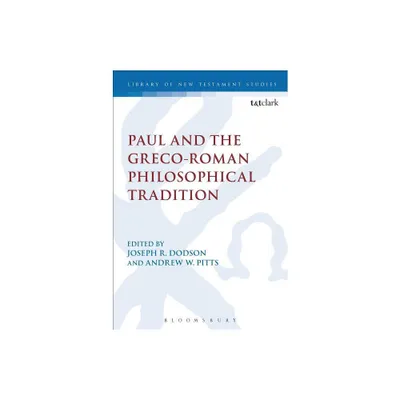Home
Paul and the Greco-Roman Philosophical Tradition
Loading Inventory...
Barnes and Noble
Paul and the Greco-Roman Philosophical Tradition
Current price: $160.00


Barnes and Noble
Paul and the Greco-Roman Philosophical Tradition
Current price: $160.00
Loading Inventory...
Size: Hardcover
*Product Information may vary - to confirm product availability, pricing, and additional information please contact Barnes and Noble
Paul and the Greco-Roman Philosophical Tradition
provides a fresh examination of the relationship of Greco-Roman philosophy to Pauline Christianity. It offers an in-depth look at different approaches employed by scholars who draw upon philosophical settings in the ancient world to inform their understanding of Paul. The volume houses an international team of scholars from a range of diverse traditions and backgrounds, which opens up a platform for multiple voices from various corridors.
Consequently, some of the chapters seek to establish new potential resonances with Paul and the Greco-Roman philosophical tradition, but others question such connections. While a number of them propose radically new relationships between Paul and GrecoRoman philosophy, a few seek to tweak or modulate current discussions. There are arguments in the volume which are more technical and exegetical, and others that remain more synthetic and theological. This diversity, however, is accentuated by a goal shared by each author – to further our understanding of Paul's relationship to and appropriation of Greco-Roman philosophical traditions in his literary and missionary efforts.
provides a fresh examination of the relationship of Greco-Roman philosophy to Pauline Christianity. It offers an in-depth look at different approaches employed by scholars who draw upon philosophical settings in the ancient world to inform their understanding of Paul. The volume houses an international team of scholars from a range of diverse traditions and backgrounds, which opens up a platform for multiple voices from various corridors.
Consequently, some of the chapters seek to establish new potential resonances with Paul and the Greco-Roman philosophical tradition, but others question such connections. While a number of them propose radically new relationships between Paul and GrecoRoman philosophy, a few seek to tweak or modulate current discussions. There are arguments in the volume which are more technical and exegetical, and others that remain more synthetic and theological. This diversity, however, is accentuated by a goal shared by each author – to further our understanding of Paul's relationship to and appropriation of Greco-Roman philosophical traditions in his literary and missionary efforts.


















